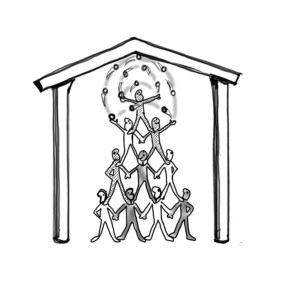Engaging Emergence has been making its way into other blogs lately.

My last entry — The Challenge of Power – inspired Curtis Ogden to further the conversation on power and emergence, Power and Emergent Change « Interaction Institute for Social
And the Freisen Group post, Reading about Change, reflected on the pace of change.
My publisher, Berrett-Koehler, hosts blog of lists. Here’s my entry: Don’t Hold On!
They featured the post in a recent BK Communiqué. (A quick, amusing read. I recommend it!)
In the process, they offered a 30% discount for Engaging Emergence through November 30th.
More, The Change Handbook chapters are available electronically via Fast Fundamentals for 99 cents each through the end of November. Take advantage of the sale through the links below:
THE CHANGE HANDBOOK on Fast Fundamentals:
Opening Chapters
The Big Picture: Making Sense of More Than Sixty Methods
Selecting Change Methods: The Art of Mastery
Preparing to Mix and Match Change Methods
Creating Conditions for Sustainable Change
In-depth Chapters
Appreciative Inquiry: A Positive Revolution in Change
Dynamic Planning and the Power of Charrettes
Dialogue and Deliberation Processes
Future Search: Common Ground Under Complex Conditions
Integrated Clarity: Energizing How We Talk and What We Talk About
Online Environments That Support Change
Using Playback Theatre to Create Empathy
The Rapid Results Method to Jump-Start Change
The Six Sigma Approach to Improvement and Organizational Change
The Technology of Participation
Visual Recording and Graphic Facilitation: Helping People See What They Mean
Thumbnail Chapters
Action Review Cycle and the After Action Review Meeting
Civic Engagement: Restoring Community through Empowering Conversation
Collaborative Work Systems Design
The Cycle of Resolution: Conversational Competence for Creating and Sustaining Shared Vision
The Drum Cafe: Building Wholeness One Beat at a Time
The Practice of Empowerment: Changing Behavior and Developing Talent in Organizations
Gemeinsinn-Werkstatt: Project Framework for Community Spirit
Evolutions of Open Systems Theory
OpenSpace-Online Real-Time Methodology
PeerSpirit Circling: Creating Change in the Spirit of Cooperation
Power of Imagination Studio: A Further Development of the Future
SimuReal: Action Learning in Hyperdrive
SOAR: A New Approach to Strategic Planning
Strategic Visioning: Bringing Insight to Action
Think Like a Genius: Realizing Human Potential Though the Purpose
The 21st Century Town Meeting: Engaging Citizen in Governance
Web Lab’s Small Group Dialogues on the Internet Commons
The Whole Systems Approach: Using the Entire System to Change and Run the Business
Closing Chapters
From Chaos to Coherence: The Emergence of Inspired Organizations
High-Leverage Ideas and Actions You Can Use to Shape the Future


